Personal Sin
In the previous article in this short series on evangelization, attention was drawn to the fact that potential converts need to be given the full truth in order to help them to convert. Dr. Barbara Morgan, foundress of the Office of Catechetics at Franciscan University of Steubenville, taught her students to help catechumens to recognize that they have a 'sin problem' and then to assist them in finding it's remedy in Jesus Christ and the Sacraments of His Church.
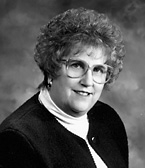
Knowledge of the objective content of the Faith is essential to this endeavour. Nevertheless, something more is needed. Because the theological virtue of Faith is a supernatural gift, and because sin both darkens the intellect and weakens the will, we also need grace. Therefore, Dr. Morgan taught her students to pray for their catechumens to receive - and become open to - the graces necessary for them to hear, accept and act on Catholic Truth.
A few years ago, at the Catechetics Conference in Rome, we listened to lectures on prayer given by Fr. Pierre de Cointet of the Notre Dame de Vie catechetical community from France.
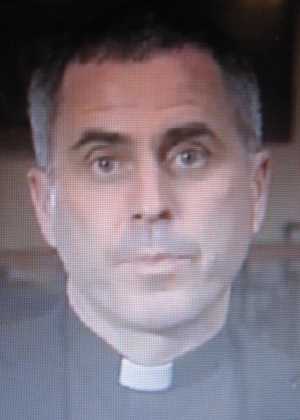
Fr. de Cointet likened the catechist to little St. Bernadette of Lourdes, who humbly removed the dirt and stones to allow the pure waters to issue forth at the Massabielle Grotto. In a similar way, priests and catechists need to help clear away the stones and debris from the hearts of their catechumens, in order for the life-giving waters of Christ to bubble up. This is a work of prayer. Fr. de Cointet explained that the catechist, the catechumens and the content and exercise of catechesis all need to be 'saturated' in prayer if they are to bear fruit. A few years back, the Notre Dame de Vie community were in England to give catechetical training and we were able to enter into this 'saturation' first-hand.
The Sins of Others
So much for overcoming the obstacles caused by personal sin. But what of the sins of others? This article will now face the obstacles caused to potential converts when Catholics give scandal by their lifestyles, actions or words - and briefly considers ways in which these might be overcome.
When I was in primary school on Merseyside, my older siblings and I one day found ourselves surrounded by a gang of tough Catholic kids; who demanded to know if we were 'Cat-Licks' like them, or 'Proddie-Dogs'. At the time, our family were very committed Protestants, of the 'Born-Again' variety, and these kids seemed irked by us. This encounter - and it's sequel when the 'Cat-Licks' sent me over the handlebars of my bicycle - left me with the faulty impression that, whilst my family aspired to be wholesome Christians, Catholics must be cruel ruffians to be avoided. This experience of scandalous behaviour formed a negative subjective response towards Catholics in my young soul. The impression would only be deepened in my high-school years, when gangs of Salesian students would surround and invade the grounds of our school looking for fights.
Around the time of the 'Cat-Lick' incident, I nevertheless remember forming a deep interior respect for Catholic priesthood and the Mass through a purely fictional - and pretty low-rent - action movie on the TV; grace can use all things!
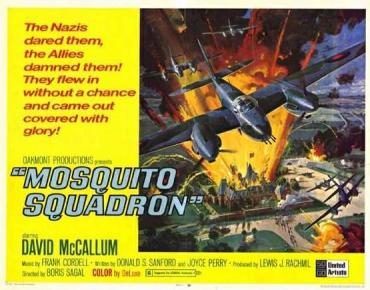
In the film Mosquito Squadron, the villainous German officer Lt. Schack, played by Vladek Sheybal, enters a prisoner-of-war-camp chapel and orders the Catholic priest to cease offering the Holy Mass. When the priest - of course facing East - ignores this unholy demand, Schack draws out his Luger and shoots the priest in the back, killing him at the altar. Even though this was a work of fiction, the violent scene impressed my youthful self with its portrayal of a man so wrapt in serving God's mysteries that he would die rather than desist.
Around the age of 20, I was on the road to conversion to the Catholic Faith. I went with my, then recently converted, parents to a parish for Benediction of the Blessed Sacrament. In light of my romantic notions inspired by the scene just described, I was horrified when the young priest suddenly set down the Monstrance, charged to the back of the church to apprehend a teenaged intruder, and pummelled him against the back wall of the church porch. When some parishioners praised this action, I was even more unhappy and decided to put off my conversion. Almost another year would pass before I was received into the Church at Easter 1993.
Helping Potential Converts to Overcome Scandal
In a sense, we don't do this at all, because it is primarily a work of grace. As Fr. de Cointet and Dr. Morgan teach their students, praying for catechumens and potential converts is an essential element in effective catechesis. There are also a few other practical things which some readers might find helpful.
One of these is to recall with catechumens that all of us are sinners in need of God's grace and mercy. Sometimes, often without intending it, we ourselves give scandal to others by our actions, words or manner. Msgr. Ronald Knox once reminded those interested in the Faith that sometimes people might actually be rather holy, but that this may often be hidden beneath a seemingly gruff exterior. He noted that this could be down to something as simple as poor digestion!
Another thing is the fact that we can often see more with a broader perspective. For example, I now realize that those Catholic boys looking for trouble were likely to have been among the first generations after the Council to suffer from the effects of the collapse in evangelization and catechesis in Catholic education. Also, a man who knew the young priest mentioned above, explained to me that he was known for his great love for the Blessed Sacrament; whilst his actions were certainly questionable, the motive behind them was likely related to that.Â
Another important thing is to call to mind the many saints that have become holy through receiving divine life in the Church. It was the realization of this that brought the renowned philosopher Dietrich Von Hildebrand into the Catholic Church. We could also recall the countless charitable enterprises and works that the Catholic Church has engaged in throughout its 2,000 year history. As we noted recently, one of its tangible truth claims is the fact that no other institution in human history has helped so many elderly, infirm, poor, or pre-born people as the Catholic Church has, in so many places, or over such a long period of time. Anyone who has stayed for a few nights at a presbytery will become quickly aware of the many addicted, homeless or troubled people who come looking for help that they will not find elsewhere.
Recalling the practical good the Church does brings us to the theme of effective apologetics. For example, not a few potential converts waver at the door of conversion when they consider the dark episodes associated, at least in the popular culture, with such things as Bad Popes, the Crusades or the Spanish Inquisition.
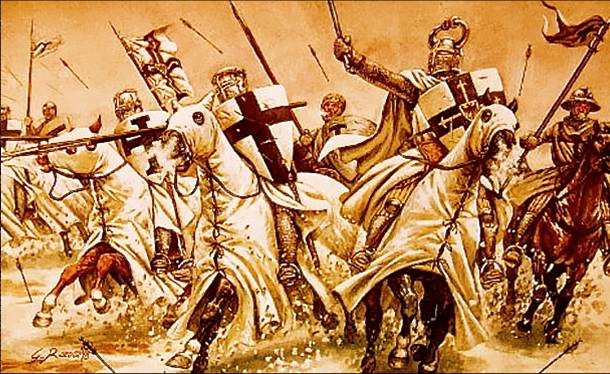
Apologetics can help us here by explaining the fact that papal infallibility is not the same as impeccability; popes are sinners like the rest of us, but they are protected from teaching error when teaching Ex Cathedra on faith and morals, in a way which is to be held as binding by the whole Church.
Apologetics can demonstrate from history that there has indeed been a small number of popes that might be viewed as bad. However, the thing to truly marvel at is the fact that, in two millennia there have only been a handful of such. And even the bad ones did not teach error in a way that would undermine Papal Infallibility. In any case, far more numerous are those popes who have contributed a great deal to the Church and to the flourishing of human civilization. Then there have been other popes that were genuinely great men and indeed others who were actually saints.
Apologetics can draw from historical evidence the fact that, whilst having admittedly negative aspects, the Crusades were not launched to spread Western hegemony or to gain plunder. Rather, were they launched to recover the profaned Holy Sepulchre, defend Christian pilgrims from the kind of barbaric slaughter now being visited on innocent people by ISIS in our own days, and to save and protect Christendom itself.
Apologetics helps catechumens and others to learn that the motives, methods, areas covered and numbers killed in relation to the Inquisitions are much different than those portrayed in the negative caricatures of popular culture.
The apologist, like the catechist, can help to remove stony obstacles. Nevertheless, we do not - and can not - deny that there were certainly problems and excesses in each of the areas discussed and in relation to the more recent cases like the dreadful sex-abuse scandals or the scandal given by pro-abortion or pro-same-sex 'marriage' politicians being received into the Church, or given Holy Communion, without prior, public repentance.
Overcome the Finite with the InfiniteÂ
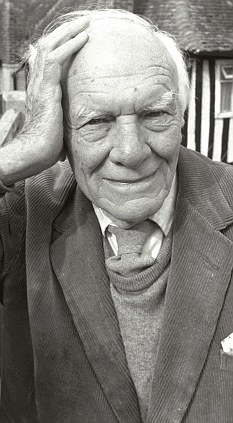
A few years before he converted to the Catholic Faith, the famous journalist and media figure Malcolm Muggeridge was hesitating in light of the very issues of the Crusades, the Inquisition, the scandalous popes and other such problems. A few things eventually helped him overcome these seeming obstacles.
One was Hilaire Belloc's witty remark that the Church must be in God's hands if It has kept on going so well in spite of some of the people who have been in charge! This reflection can be helpful to Catholics and potential converts at this time of confusion, dissent and major upheaval.
Another which readers will likely find encouraging, and that the Synod and our present English Cardinal would benefit from heeding, is that the Catholic Church's firm stand against contraception and abortion helped Muggeridge to convert. He saw that the evils of contraception had made havoc for the young and the old, caused precocious sexual practices in children, led to debauchery in the universities and generally violated the natural order of things. He saw the Church's opposition as a very gallant effort to prevent moral disaster. Â Â
The other, more personal, thing that helped Muggeridge to eventually convert to the Catholic Faith was a letter he received from Blessed Mother Teresa of Calcutta. She wrote:-
'The personal love Christ has for you is infinite - the small difficulty you have regarding the Church is finite. Overcome the finite with the infinite. Christ has created you because He wanted you. I know what you feel - terrible longing, with dark emptiness - and yet He is the one in love with you. I do not know if you have seen these few lines before, but they fill and empty me: My God, my God, what is a heart, that Thou should'st so eye and woo, pouring upon it all Thy heart, as if Thou had'st nothing else to do?'
Dear readers, catechumens and potential converts, let us allow Christ to overcome the finite in our lives with the infinite. When we are scandalized by the hurts, betrayals or other sins and behaviours of Catholics, let us recall that it is Jesus Who loves us, and that all that really matters is that we let Him love us and love Him back with all our hearts. We do this by being in communion with Him through the Catholic Church.



